Introduction
The European University Institute (EUI), also known as the European University Institute, is a famous higher education teaching and research institution located in Florence, Italy, specializing in graduate, doctoral and postdoctoral education.
Overview
Number of students and faculty: It has more than 1,000 scholars from more than 85 countries, enrolls about 140 doctoral students each year, and a certain number of postdoctoral researchers.
Course settings: It offers doctoral courses in social sciences such as economics, law, history, and political science, as well as master's courses such as transnational governance.
History
Its origins can be traced back to the advocacy of the establishment of a European institute at the Hague Conference in 1948 and the European Cultural Conference in Lausanne the following year.
At the Messina Conference in 1955, the then European Coal and Steel Community member states discussed the idea of establishing a nuclear science training center, but the idea was not transformed from a nuclear science center to an institution focusing on the humanities and promoting cultural exchanges between member states until 1969 when European leaders resolved in The Hague to fund the establishment of the European University Institute in Florence.
In 1970 and 1971 After meetings in Florence and Rome in 1972, it was decided that the institute would only provide postgraduate education and would not directly serve as a community institution.
In 1972, the six founding member states of the European Community, Belgium, France, Germany, Italy, Luxembourg and the Netherlands, signed a convention to establish the European University Institute. The convention came into force in 1975 and welcomed the first 70 researchers in 1976.
After Denmark, Ireland and the United Kingdom joined the European Community in 1973, they also joined the convention to establish the European University Institute. In 1992, the 12 member states of the European Community at that time signed a new convention to amend the 1972 convention, which came into force in 2007 after the last contracting party approved it.
Establishment time
1972 Years.
School Strength
Faculty: The college employs professors with academic reputation from various European countries. They have profound attainments and rich teaching experience in their respective professional fields, providing students with high-quality education and guidance.
Teaching Resources: As an important social science research center in Europe, it has rich academic resources and research facilities, providing strong support for students and researchers to carry out in-depth academic research.
Nature of the institution
The European University Institute is an international organization among EU member states with legal personality. It is jointly funded by EU member states and aims to promote the development of European social sciences and culture.
Educational Philosophy
Committed to the highest level of university teaching , interdisciplinary research on major social challenges and in-depth academic discussions and debates, contribute to the cultural and scientific development of Europe, and cultivate high-level academic and decision-making talents who can shape social progress and promote the development of the European spirit.
Key laboratories and disciplines
Key laboratories: The Robert Schuman Center for Advanced Studies is one of its important research institutions, with multiple research projects and institutions such as the Global Governance Project, the Florence Regulatory Academy, the European Governance and Politics Project, the Immigration Policy Center, and the Center for Media Pluralism and Media Freedom.
Key disciplines: Economics, law, history, political science and other disciplines are strong and perform well in global rankings, such as the economics major is ranked first in the world. 151, Political Science ranked 31st in the world, History ranked 51st in the world, etc.
Faculty
There are four departments: History and Civilization Department, Economics Department, Law Department, Political and Social Science Department, and Transnational Governance Institute, etc.
Ranking
Ranked 758th in the US NEWS World University Rankings.
Expenses
Tuition fees: Tuition fees for different majors and programs vary. Doctoral programs usually have scholarships and other funding opportunities. For example, the 2025 doctoral program offers up to 130 full scholarships, including tuition fees, monthly living expenses of 1,505 euros, medical insurance and other benefits.
Living expenses: Living in Florence, Italy, including accommodation, food, transportation and other expenses, costs about 10,000-12,000 euros per year.
Campus Environment
Geographic location: The main campus is located in San Domenico in Fiesole, Florence, Italy. It is located on the hills of Florence, with beautiful surroundings and a strong cultural atmosphere. At the same time, it is convenient for students to go to Florence city and other places.
Campus Facilities: The campus has a unique architectural style and has modern teaching facilities, libraries, research centers, etc., providing students and researchers with a comfortable learning and research environment. In 2021, the School of Transnational Governance moved to the Medici Casino Palace in the historical center of Florence. The building is a palace in the late Renaissance or Mannerist style.
-
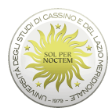
University of Cassino and Southern Lazio
-

University of Campania Luigi Vanvitelli
-
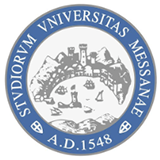
University of Messina
-
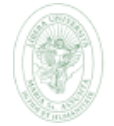
Libera Universita degli Studi Maria SS. Assunta di Roma (LUMSA)
-
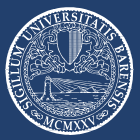
University of Bari Aldo Moro
-
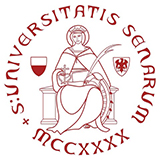
University of Siena
-
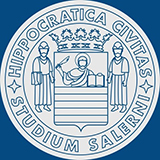
University of Salerno
-
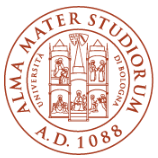
University of Bologna
-
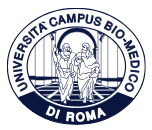
Campus Bio-Medico University of Rome
-
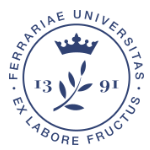
University of Ferrara
-

Mesoamerican University
-

Istmo University
-

Mariano Galvez University of Guatemala
-

Regional University of Guatemala
-

Galileo University
-

Francisco Marroquín University
-

Rafael Landívar University
-

University of the Valley of Guatemala
-

University of San Carlos of Guatemala
-

Technological Institute of Tlaxcala Plateau
-

Golfo University
-

Technological University of South Sonora
-

Technological University of Huejotzingo
-

Tizimín Institute of Technology
-

Chilpancingo Institute of Technology

